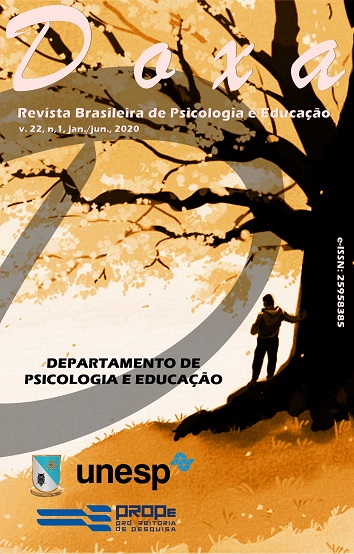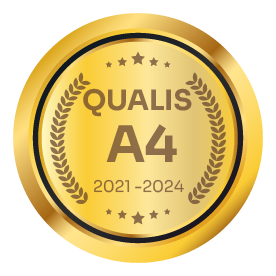Teaching voices from the perspective of affectivity in childhood education
DOI:
https://doi.org/10.30715/doxa.v22i1.13914Keywords:
Affectivity, Child education, Teacher.Abstract
The development of children in early childhood education involves several aspects inherent to the school context. Mainly, the question of affectivity is considered as a central element in the learning process. Thus, the following research sought to give teachers a voice about the importance of affectivity in the child's development, more specifically, in early childhood education in the municipality of Bertioga. To this end, the research was structured based on a bibliographic survey according to the theoretical assumptions of Wallon and Piaget, which portray the importance of interactions in human development, also highlighting the relationship between affectivity and children's learning. For a conclusion based on experiences in the school context, the field research was carried out with 7 teachers from different schools, through a semi-structured interview with teachers from public and private schools in the municipality of Bertioga. The data collected by the interview with teachers allow a more in-depth reflection on school practices and the importance of affectivity from the perspective of teachers.Downloads
References
BATISTA, Maria. A importância da afetividade para o desenvolvimento da criança na escola. Brasil, 2012.
BRASIL. Lei de Diretrizes de Bases da Educação Nacional (LDB). Lei Federal n. 939496, de 26 de dezembro de 1996. Estabelece as diretrizes e bases da educação nacional. 6. ed. Brasília: Câmara dos Deputados, Edições Câmara, 2011.
BRASIL. Constituição da República Federativa do Brasil: Promulgada em 5 de outubro de 1988. Art. 205-214. Diário Oficial [da] República Federativa do Brasil, Brasília, 1988. Disponível em: http://www.planalto.gov.br/ccivil_03/constituicao/constituicao.htm. Acesso em: 05 jul. 2020
BRASIL. Lei n. 8.069, de 13 de julho de 1990. Dispõe sobre o Estatuto da Criança e do Adolescente e dá outras providências. Disponível em: http://www.planalto.gov.br/ccivil_03/leis/L8069.htm. Acesso em: 05 jul. 2020.
BECKER, Fernando. Abstração reflexionante: relações lógico-aritméticas e ordem das relações espaciais. A epistemologia do professor. Porto Alegre, 2012.
GALVÃO, Izabel. Uma concepção dialética do desenvolvimento infantil. Petrópolis-RJ, 1995.
GROSS, Richard. Psychology, the science of mind and behavior. 5. ed. Hodder Arnold Publication, 2005.
MAHONEY, Abigail. Henri Wallon: Psicologia e Educação. Brasil, 2000.
MENDONÇA, Maria Alice. TAVARES, Helenice Maria. Afetividade: O fio condutor na educação infantil. Uberlândia: Faculdade Católica de Uberlândia, 2008. 12 p.
PIAGET, Jean. A formação do símbolo na criança: imitação, jogo e sonho, imagem e representação. Rio de Janeiro: LCT, 1971.
PIAGET, Jean; INHELDER, Barbel. Da lógica da criança à lógica do adolescente. São Paulo,1976.
PIAGET, Jean. La relación del afecto com la inteligência en el desarrollo mental del niño. Universidade Autónoma Metropolitana: Xochimilco. 1962.
PIAGET, Jean. O tempo e o desenvolvimento intelectual da criança. Rio de Janeiro: Forense,1973.
PARRAT, Silvia. Colaboradora cientifica Archives na Universidade de Genebra. Brasil, 2011.
SOUZA, Maria. As relações entre a afetividade e a inteligência no desenvolvimento psicológico. Brasília, 2011.
TAILLE, Yves. Coleção de grandes educadores. Brasil, 2006.
WADSWORTH, Barry. Inteligência e afetividade da criança. 4. ed. São Paulo: Enio Matheus Guazzelli, 1996.
WALLON, Henry. Do ato ao pensamento. França, 1942.











